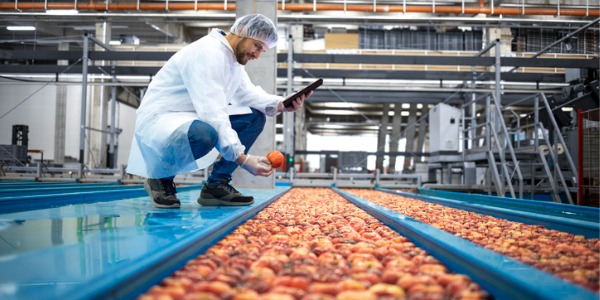What is a Food Regulatory Consultant?
A food regulatory consultant helps food companies follow laws and regulations related to the production, labeling, marketing, and distribution of food products. They guide businesses through complex rules set by government agencies to make sure products are safe, properly labeled, and legally compliant before they reach consumers.
These consultants often work with a variety of clients, including manufacturers, importers, restaurants, and retailers. Their job involves reviewing ingredient lists, evaluating labels, preparing regulatory documents, and advising on best practices. They help businesses avoid legal problems, recalls, and delays by ensuring everything meets the latest food safety and labeling standards.
What does a Food Regulatory Consultant do?

Duties and Responsibilities
The duties and responsibilities of a food regulatory consultant involve providing expertise and guidance to clients in navigating food regulations and ensuring compliance. Here are some common duties and responsibilities:
- Interpreting Food Regulations: They analyze and explain food laws and regulations, helping companies understand how these rules apply to their products and operations.
- Label and Ingredient Review: Consultants review product labels and ingredient lists to ensure accuracy, legal compliance, and adherence to nutritional and allergen labeling requirements.
- Regulatory Documentation: They prepare and submit the necessary paperwork for product approvals, including compliance reports, safety assessments, and filings with regulatory bodies.
- Client Advising and Risk Management: They provide guidance on best practices, identify potential compliance risks, and recommend changes to minimize legal or regulatory issues.
- Monitoring Regulatory Changes: Food regulatory consultants stay up to date on changing food laws and ensure that clients remain compliant as rules and standards evolve.
Types of Food Regulatory Consultants
Here are some common types of food regulatory consultants, based on their areas of focus:
- Labeling and Packaging Consultants: Specialize in ensuring that food product labels meet all regulatory requirements for nutrition facts, ingredient lists, health claims, and allergen disclosures.
- Import/Export Compliance Consultants: Focus on helping companies navigate international food regulations, ensuring that products meet the standards of various countries for cross-border trade.
- Food Safety and Quality Consultants: Work closely with companies to develop and review food safety plans (such as HACCP), implement best practices, and comply with safety regulations.
- Product Development Regulatory Consultants: Assist during the formulation and launch of new products by evaluating ingredients, additives, and claims for regulatory compliance.
- Allergen and Dietary Claims Specialists: Provide expertise in labeling and compliance for gluten-free, organic, non-GMO, and allergen-free products, helping companies meet specific dietary claim standards.
What is the workplace of a Food Regulatory Consultant like?
The workplace of a food regulatory consultant can be different depending on who they work with and what kind of food products they focus on. Many work in offices at food companies or consulting firms, while others work from home. Since the job often involves reading regulations and checking documents, a quiet and organized workspace is helpful.
These consultants often work closely with teams that include product developers, legal advisors, and quality control staff. They may join meetings to help make sure food products follow the correct rules, especially when it comes to labels and ingredients. Sometimes they visit factories to see how food is made and check that everything meets safety and legal standards.
Some food regulatory consultants also travel, especially if they have many clients or work with international companies. They might go to conferences, meet with government agencies, or check out production sites. It’s a job that requires good research and communication skills, as well as a strong knowledge of food laws.